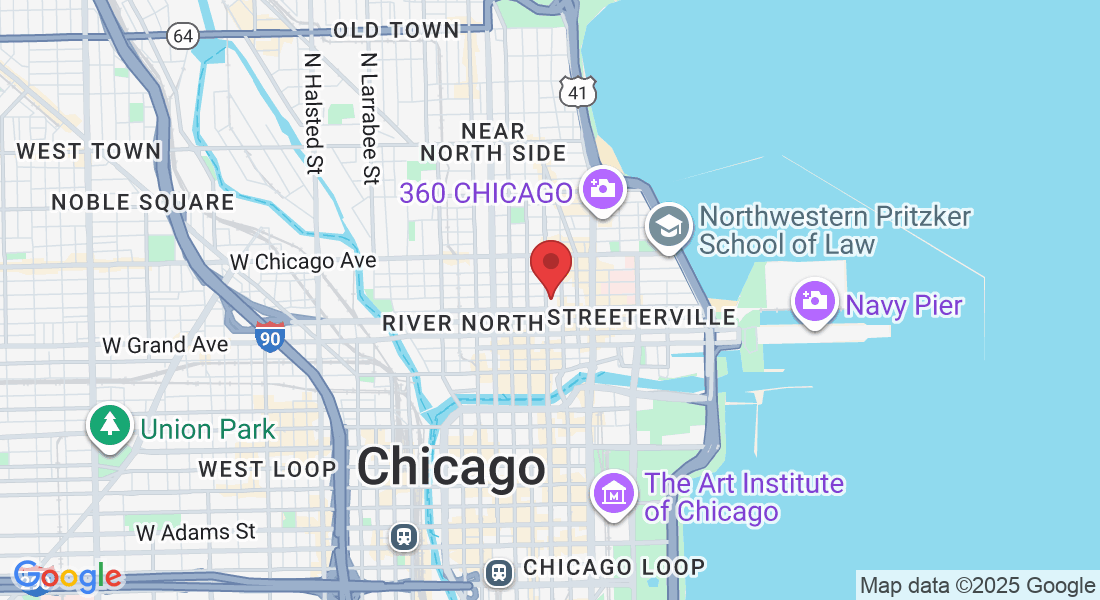
Burial Insurance After Circulatory Surgery: What to Know
More than 400,000 people die from circulatory illness each year in the United States, where it affects more than 85 million people. The most prevalent types, which can result in a heart attack or stroke, are peripheral vascular disease and coronary artery disease.
You might benefit from getting a policy that pays for the expense of vascular surgery associated to circulatory disorders if you’re at risk for developing them.
If you are insured by your parents’ health insurance (many don’t pay surgical costs) or if their plan doesn’t cover this type of surgery, you might need separate insurance. While saving you money on premiums, a stand-alone insurance coverage suited to your needs can provide you peace of mind.
Let’s examine what it means to undergo circulatory surgery, the possible possibilities, and how it might affect your life if you need insurance for such an incident.
What Is Burial Insurance With Circulatory Surgery?
A type of life insurance known as burial insurance with circulatory surgery provides a lump sum payment in the case of death, which is typically caused by heart illness or a stroke.
Unlike standard life insurance, which pays out when the insured individual passes away from any cause, it has different terms.
Burial insurance is also referred to as “death benefit,” “accelerated death benefit,” or “survivor’s benefit” when it comes to circulatory surgery.
Circulatory surgery includes vascular or cardiac surgery. It entails actions aimed at enhancing the body’s circulation. It can be accomplished by reconstructing broken vessels or by using artificial ones in their place.
You need to have the appropriate health insurance coverage in place if you have circulatory problems so that you can get the right care when it’s needed.
For instance, if drugs, lifestyle changes, and other therapies like a pacemaker aren’t effective enough to manage your disease, your doctor might advise surgery.
Any of the following operations will qualify you as a patient for circulatory surgery:
Angioplasty
Artificial Heart Valve Surgery
Atherectomy
Aneurysm Surgery
Arrhythmia Surgery
Bypass Surgery
Catheter Ablation
Cardiomyoplasty
Coronary artery bypass graft
Heart Transplant
Heart Valve Replacement
Stent Placement
Myectomy/ myotomy
Valvular Surgery
Transmyocardial Revascularization
Surgery performed on arteries can help improve blood flow and cardiovascular health.
Circulatory surgery is not always clearly defined by burial insurance companies as a factor, as long as it happened after the policy was signed.
Some insurance companies will not pay for burial expenses if there is insufficient time between your procedure and death. The key factor affecting waiting times and other fees is coverage.
It will determine the total cost and whether you must wait for refund.
Best insurance policy option for Circulatory Surgery
Some of the insurance policy options for Circulatory Surgery are as follows:
Circulatory surgery took over two years.
If two years have passed since your surgery, you can choose what type of valve to use. With burial insurance, every company offers coverage options regardless of whether or not you had surgery.
So you’ll also be eligible for the lowest possible rate on your death benefit plan.
Final expense life insurance with no exam and a fixed death benefit provides immediate coverage that takes effect on the first day.
However, this plan is the least expensive way to insure against burial expenses in the event of a death, & it can be effective for those that need it quickly.
Circulatory surgery took over 12 months.
For a year following circulatory surgery, several burial and final expense insurance providers will waive the premiums. The first-day benefit plan is still your best choice if it occurred more than a year ago.
Your death benefit is phased in over time, and you begin receiving all benefits on the day you start employment.
Circulatory surgery was within one year.
Before creating the greatest insurance plan possible, it could take some time.
Your finest insurance choice if you’ve recently undergone circulatory surgery is guaranteed issue burial insurance.
Although this flight may cost more than other options and has a waiting period, it is still your best option.
Your beneficiary will get 100% of your premiums in the event that you pass away within the first 24 months of the policy. Additionally, after the two years have passed, you will be qualified for the maximum death benefit.
Custom HTML/CSS/JAVASCRIPT
Do I need a medical test to qualify for Burial insurance with Circulatory Surgery?
No medical examination is necessary to be eligible for Circulatory Surgery’s burial insurance.
When you apply for funeral insurance, you will be asked a few health-related questions.
You won’t be required to provide any medical records or blood or urine samples, though. Additionally, the insurance company will typically provide you official permission within minutes!
Burial Insurance Underwriting For Circulatory Surgery
What information do they typically request during the underwriting process?
Typically ask about your overall health and any other illnesses you may have.
They will also ask about your history of prescribed medications.
One of the more common health questions in burial insurance companies is whether or not the applicant has had circulatory surgery.
Health Concern:
Most burial insurance companies will ask this question multiple ways. Typically they will ask it in many ways. The following are questions that you will see when applying for circulatory surgery:
Have you been diagnosed with heart or circulatory problems in the past two years? It includes any surgery, treatment, or hospitalization.
Did you have a stroke, angina, aneurysm, or other heart surgery in the last 12 months?
Have you had a heart attack, been diagnosed with cardiomyopathy, or had any heart or circulatory surgery within the past two years?
If you respond affirmatively to any of these questions, it could potentially impact your rate and when your coverage becomes effective.
Check The Prescription history.
Your current pharmaceutical regimen, including the generic name and dosage, will need to be disclosed to the insurance provider.
But once more, the goal is to make sure you’re in good health and that there are no problems.
Common medications for circulatory surgery:
You can take a number of different drugs to treat circulatory problems. Typical examples include:
Heart failure and excessive blood pressure are both treated with ACE inhibitors. They function by relaxing blood arteries, which enhances the flow of blood to the heart and brain.
Beta-blockers: These medications lower cardiac stress by reducing blood pressure and slowing heart rate.
Calcium channel blockers: These medications likewise lower blood pressure and slow your heart rate, but they also have the ability to relax other muscles in your body, including those in your digestive system.
Diuretics (water pills): By increasing your urine production, these medications can help you avoid fluid accumulation in your lungs following surgery.
Anticoagulants, such as warfarin, heparin, and low molecular-weight heparin, are used to prevent blood clotting. To avoid thrombosis, they are frequently administered two weeks following surgery (a blood clot).
Antiplatelet agents: By making platelets less sticky, which leads to clotting, these drugs help lower the chance of developing new clots.
Aspirin, clopidogrel (Plavix), prasugrel (Effient), and ticagrelor are antiplatelet medications that are often used (Brilinta).
Blood clots in the leg, heart, or lungs can be treated using thrombolytics, which dissolve blood clots.
What are the benefits of burial insurance with Circulatory Surgery?
Circulatory Surgery offers burial insurance to safeguard your family in the event of your passing. Additionally, it can assist in paying for debts, burial bills, and other swan-song expenses.
Burial insurance is a sort of life insurance that provides your beneficiaries with a death benefit upon your passing. It can assure that your loved ones will be financially taken care of after you pass away.
Burial insurance does not call for a medical examination, in contrast to other types of life insurance. This makes it the perfect choice for those who might not be able to meet the requirements for conventional life insurance coverage.
Compared to other types of life insurance, burial insurance premiums are often more cheap. They are thus a good choice for those on a tight budget who yet wish to protect their families financially.
Typically, there is no waiting period for burial insurance. The death benefit will be paid out as soon as the policy is issued, in other words.
What Information Do We Need If You Have a Circulatory Surgery?
When applying for final expense insurance with circulatory surgery, providing as much information as possible will give us a better understanding of your health condition.
The questions we will ask you about your circulatory surgery history include:
What type of circulatory surgery do you have?
How long ago did it occur?
What was the cause of your circulatory surgery?
How old were you when you had your circulatory surgery?
How long did it take for you to recover from this type of surgery?
What complications have resulted from the procedure?
What treatments have you undergone since then?
Do you still have any symptoms related to your circulatory surgery?
Do you plan on having any future policies or surgeries related to this condition?
What kind of medications are you taking right now?
Do you have any other medical problems apart from that?
Have you ever received a diagnosis of heart disease?
We need to know your medical condition to provide you with the best recommendation. The more information we get, the better our chances of finding affordable insurance coverage.
How Does Burial Insurance With Circulatory Surgery Work?
You pay a single premium at the beginning and receive coverage until one year after your death when you purchase this sort of policy, which typically has a restricted term (or whatever period is specified in your contract).
Your beneficiary will be able to cash out the plan if you pass away within this time limit and utilise the proceeds to cover your funeral costs. An typical death payout, for instance, could be between $5,000 and $10,000 for someone who passes away between the ages of 50 and 75.
What does Burial Insurance with Circulatory Surgery cover?
This kind of insurance plan is made to pay for all funeral-related costs, such as:
coffin or urn
a gravestone or vault
Services provided by funeral homes, such as embalming and visiting hours
Transport services for the body to and from the funeral home
Embalming (if necessary) (if necessary)
On the day of burial, a memorial service will be held at a church, synagogue, or other house of worship (if desired)
How can Diabetic Insurance Solutions Help You To Get The Best Final Expense Insurance Policy?
Finding a policy doesn’t have to be difficult. To streamline and make the procedure more convenient, we collaborate with a separate agency.
Please let us know if you have just undergone surgery so we can give you with high-quality care that is suited to your needs. We’ll locate insurance for you that fits your needs and price range.
We’re here to offer guidance and support, so don’t waste time independently searching for other insurance.
We’ll shop around for the best price on your behalf at the different insurers. We collaborate with numerous insurance companies who have an A+ rating and provide superior services to high-risk customers like you.
We will look through all of the top local providers of funeral insurance to choose the one that offers you the most affordable premiums.
We can assist you in obtaining insurance for your project at a price that works for you. Talk to us right now! We can assist if you’re looking for insurance for circulatory surgery.
Regardless of a person’s health conditions, we are dedicated about offering the greatest final expense insurance coverage. To get assistance right away, dial (855) 380-3300.



